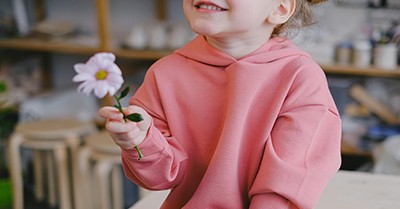There are so many wonderful ways to help children connect with nature and understand its importance! Here are a few engaging experiences you can implement in an early childhood setting.
- Nature Scavenger Hunt – Create a list of natural items (like leaves, rocks, or feathers) for children to find. This encourages exploration and observation skills.
- Gardening Together – Let children plant flowers, vegetables, or herbs. This teaches responsibility and helps them appreciate the process of growth.
- Mud Kitchen Play – Set up a play area with pots, pans, and mud for creative cooking. This messy but fun activity encourages sensory exploration.
- Leaf Rubbing Art – Place leaves under paper and rub with crayons to make leaf prints. This fosters creativity while exploring textures in nature.
- Building Fairy Houses – Use sticks, leaves, and other natural materials to create tiny homes for fairies. This sparks imagination and appreciation for natural materials.
- Nature Journaling – Have children draw or write about their observations and experiences in nature. This helps them reflect on their surroundings.
- Exploring Flowers – Engage children in sensory play with petals, leaves, and natural scents. Activities like making flower tea or creating nature glitter can be fun and educational.
- Rock Painting – Paint rocks with various designs and use them for decoration or games. This blends art and nature beautifully.
-
Forest Walks & Tree Identification – Take children on nature walks and teach them how to identify different trees and plants. This builds observation skills and appreciation for biodiversity.
-
Wildlife Spotting & Birdwatching – Encourage children to observe birds, insects, and small animals in their surroundings. They can use binoculars and keep a log of their sightings.
-
Nature-Based Storytelling – Read or create stories inspired by nature. This helps children connect emotionally with the environment.
-
Outdoor Science Experiments – Conduct simple experiments like testing soil pH, observing water absorption in plants, or studying the effects of sunlight on leaves.
- Building Bug Hotels – Create small shelters using twigs, leaves, and stones to attract insects. This teaches children about ecosystems and the role of insects in nature.
- Nature Mandalas – Arrange leaves, flowers, and stones into beautiful patterns. This encourages creativity and mindfulness.
- Eco-Friendly Art Projects – Use natural materials like clay, leaves, and recycled paper to create artwork, reinforcing sustainability.
- Weather Observation & Cloud Watching – Teach children about different cloud types and weather patterns by observing the sky.
- Outdoor Yoga & Mindfulness – Practice simple yoga poses or mindfulness exercises in nature to help children feel connected to their surroundings.
- Nature-Themed Sensory Bins—Fill bins with natural elements like sand, water, leaves, and stones for sensory exploration.
Further Reading
Nature Play Week Activities For Children
How Does Nature Affect A Child's Development
Nature Programs In Early Childhood Setting
Incorporating Natural Materials In The Learning Environment
Learning With Nature
